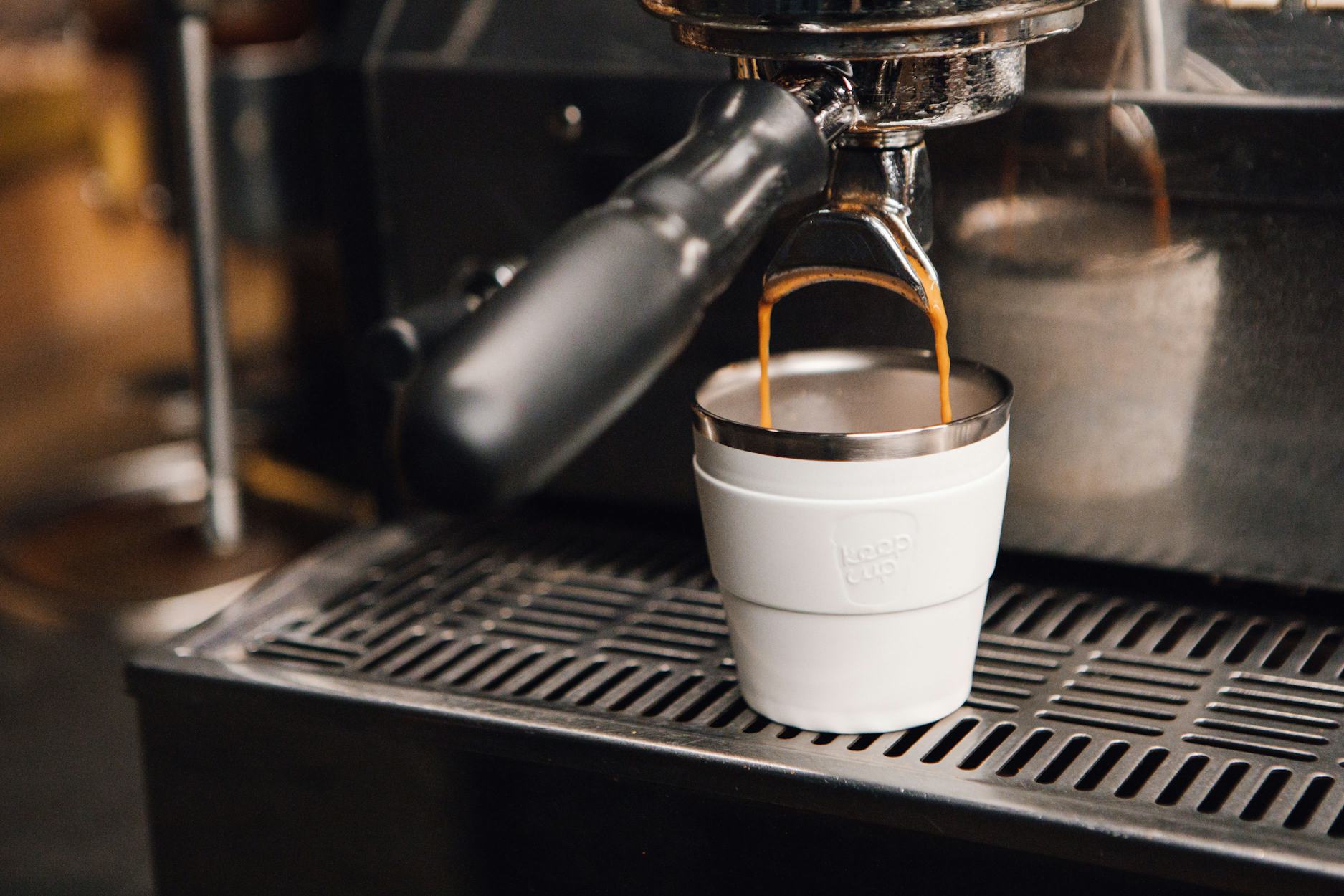KeepCup helped kick-start a behavioural shift encouraging individuals to replace single-use products and packaging with reusable products.
Co-founders Abigail and Jamie Forsyth used their first-hand knowledge of the café business to launch the world’s first barista-standard reusable coffee cup – a product now sold in 75 countries across the globe.
KeepCup customers prevent millions of disposable coffee cups from ending up in landfill every year.
In a bid to further reduce single-use plastics, KeepCup have designed their Helix range, a modular system which enables use as both a cup and a bottle.
The abundance of single-use products in our daily lives is one of the starkest expressions of society’s modern obsession with convenience. From plastic bags to disposable cutlery, single-use items are the perfect example of our linear ‘take-make-dispose’ economic model in action. The transition to a circular model – where resources are valued and kept in circulation for as long as possible – requires a cultural re-education to reveal the inherent value of our resources, so that convenience is willingly sacrificed for the greater good.
In some social circles, the replacement of single-use products with reusable products is now a new norm. One of the products that kick-started this behavioural shift is by Australian-owned business, KeepCup – a brand that is now synonymous with reusable coffee cups who have recently released the KeepCupBottle, and in September 2022 are complimenting it with the full twist-fit Helix Range.
The Helix range, including the fully sealed cup and cup-to-bottle kit, have been designed in a bid to reduce single-use plastic bottle waste, streamline the number of reusables we carry every day and to increase our reuse occasions through the day.

The inception of KeepCup
KeepCup co-founders and siblings Abigail Forsyth and Jamie Forsyth identified the need for their products while running a chain of cafés in Melbourne and witnessing the enormous amount of waste created by single-use, disposable, unrecyclable coffee cups. In 2009 they used their first-hand knowledge of the café business to launch the world’s first barista-standard reusable coffee cup – a product now sold in 75 countries across the globe.
Adoption by key stakeholders
Abigail believes the design of the cup is one of the key elements of its success. “It wasn’t so much the cafés and coffee owners who drove success and adoption; it was the baristas, the people who make the coffee every day in single-use packaging,” she says. “With this in mind, we designed our products to reflect the takeaway cup sizes commonly used, ensuring all KeepCups fit under group heads and supported business as usual for cafés, with no need to transfer the coffee from one cup to another.”

“This acceptance from the café community was critical to our success. We saw baristas congratulating our customers who brought in KeepCups, giving social license to the reuse revolution.”
KeepCup customers prevent millions of disposable coffee cups from ending up in landfill every year. With the release of the Helix range, KeepCup customers can now reduce single-use plastic waste even further. The design, a cup and bottle all twisted into one, allows for a variety of hot and cold beverages, and the split-in-half functionality allows for additions such as ice, fruit and boba.
“We’ve always been committed to designing innovative products which challenge the reality of our landfill-based economy. Even for committed 'reusers', the need to carry a reusable cup and a water bottle can be a barrier to repeat behaviour. The Helix range provides an alternative to single-use bottles as well as coffee cups and is a constant reminder to refuse single use,” says Abigail.

Profitability in circular design
Globally, replacing just 20 per cent of single-use plastic packaging with reusable alternatives offers an opportunity worth at least US$10 billion. Abigail hopes KeepCup provides entrepreneurs or businesses looking to transition to a more circular model with an example of how circularity and sustainability can be the foundation of a business and still be profitable.
“The individual action of using a KeepCup is a signal of the wider process and values change people are seeking in the community. We have created demand and now some heavy lifting must be done by big business and government to change processes and service models to drive the transition to a circular economy.”
Learn more about KeepCup’s journey.